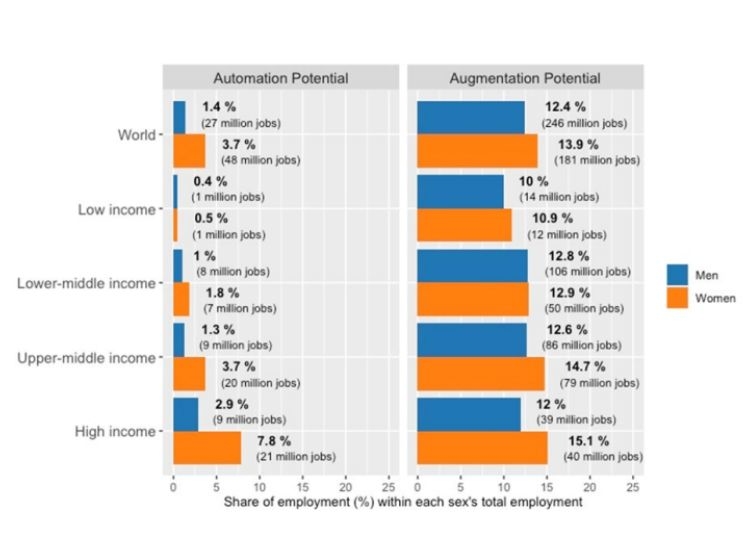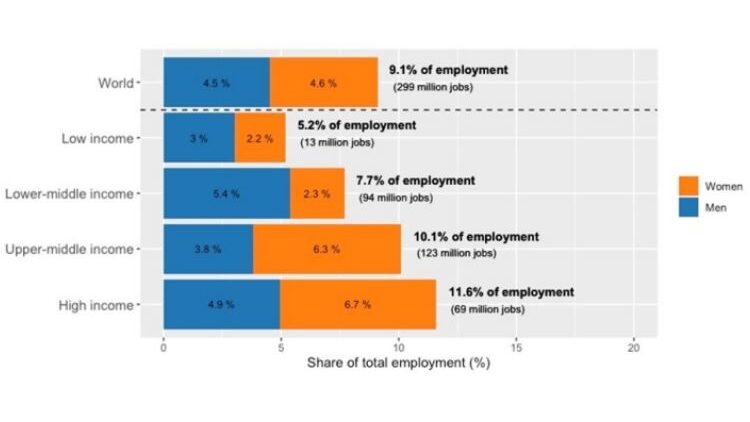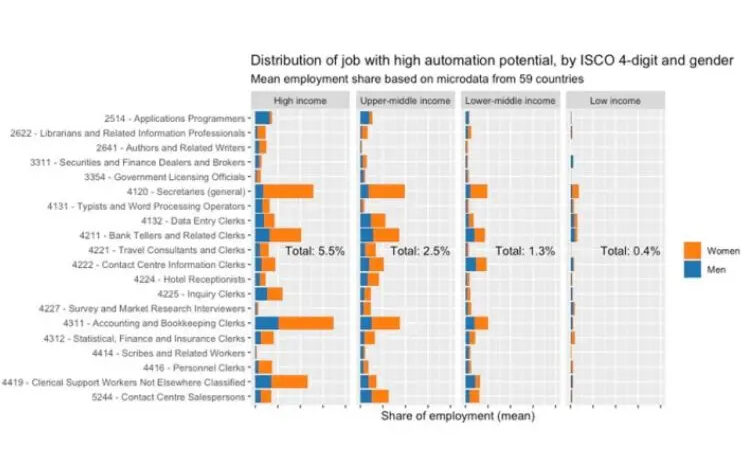
In recent months, artificial intelligence (AI) has made its mark across various aspects of our lives, from smartphones to cars, becoming a major player in technology. The common inquiry revolves around “whether AI will take over human jobs?” This issue prompted the International Labor Organization (ILO) to investigate and illuminate the potential consequences.
Potential Impact on 75 Million Jobs
The ILO’s latest assessment report on generative AI reveals that the job market could face significant disruptions due to AI. The report suggests that AI’s role in reshaping work will likely be more collaborative than outright replacing humans.

According to the ILO’s data, around 75 million jobs could experience some form of impact from automation. This means that AI has the potential to take over tasks previously done by approximately 70 million people globally, encompassing both men and women.
On the positive side, the data also indicates that about 427 million jobs could benefit from augmentation. This entails AI working alongside humans to enhance the quality, intensity, and autonomy of tasks, paving the way for a digitally advanced future.
Gender Disparities in Automation
A notable finding of the study is the gendered impact of this AI transition. In high-income countries, almost 21 million jobs held by women are at risk of automation, more than twice the number of jobs held by men in similar countries. This trend extends to countries with varying income levels.

The reason for this gender-based disparity lies in the overrepresentation of women in clerical roles. Many positions at risk of automation are clerical in nature, a field that has historically been a major source of female employment. This gendered effect could either magnify the challenges faced by women or potentially lead to their empowerment.
The Path Forward with AI
While the prospect of AI’s impact on jobs can be unsettling, it’s a reality we’re already facing. The ILO report highlights that AI could potentially replace roles such as typists, travel consultants, scribes, bank tellers, and more. The degree of impact will vary based on the country’s income level.

Low-income countries face lower risks, with only 0.4% of jobs facing automation, while high-income countries see around 5.5% of jobs at risk. Encouragingly, developing countries have an opportunity for skill development and growth through the gradual integration of automation, provided they implement measures to mitigate negative effects.
In essence, AI’s influence on the job market presents challenges and opportunities alike. How we navigate this transition will determine the future landscape of work and its intersection with technology.

0 Comments